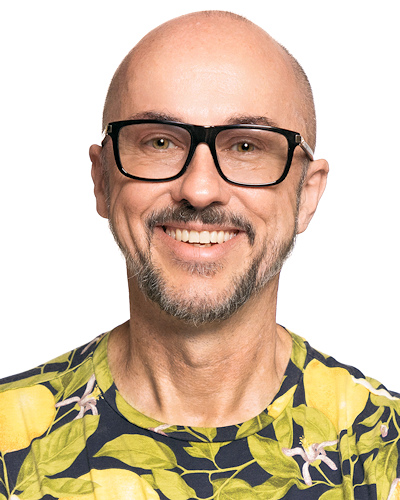
Philosophy & Vision
Hello, I'm August (he/they), a Neurodivergent Counsellor and proud member of the LGBTIQA+ community. I particularly like working with sensitive, creative and 2E neurodivergent people using Narrative Therapy, a type of counselling that is well-suited for people who have not found traditional cognitive behavioural approaches to be a good fit. Part of what drew me to narrative therapy is its power to explore themes around identity and power - how do we understand ourselves and our identity?
Background
"Who we are and what we do are influenced by the stories that we tell about ourselves." (Denborough, 2014).
Think of any story, your story, a favourite story, or a story found in a movie, book, song, photo, in the news, or an advertisement (etc.). Our lives, our experiences and our responses to life, tell a story.
Some stories bring us strength, hope or courage when we need them, reminding us of important things, important memories, events, significant people, values, or strengths we hold close. At other times, problematic stories come along that may distract us, or get in the way of our thoughts, feelings, or preferred life outcomes we would rather be pursuing.
Services
I hope to invite something unique in working alongside you. But first, I would like to acknowledge the Gadigal People of the Eora Nation as the traditional owners and custodians of this land on which I am privileged to live and work.
We live our lives by the stories that we tell about ourselves and our world. I understand that you are made up of countless stories and experiences. While your identity labels and diagnoses are important to me, I also know you are much more than these words, and that these qualities do not necessarily define you. Who are we if we are not the cultural stereotypes and misconceptions that limit us, distract us, or get in the way of us creating a full and meaningful life?
Quality Provision
I am motivated by social justice and assisting people to understand how systems of oppression (racism, sexism, homophobia, ableism, etc) affect their mental health. I take a de-pathologising approach and see mental distress as being a problem located within wider, more dominant cultural systems rather than the individual person.
I use my voice in calming, soothing or engaging ways. I can be playful around ideas and imagination; or reflective and measured, depending on our topic of conversation.
Areas of Special Interest
Accreditations
- Masters of Narrative Therapy and Community Work - 2022 - University of Melbourne & the Dulwich Centre
- Bachelor of Counselling - 2019 - Australian College of Applied Psychology
Modalities
ACT - Attachment Theory - Existential - Motivational Interviewing - Narrative Therapy - Trauma-Informed
Therapy Approach
The Narrative Approach:
Firstly, we will look at the specific story you bring and then, in a sense, look to unpack the story like a suitcase (a unique, and imaginative suitcase of curiosity and potentiality) to consider the various parts.
From here, we may give time to certain parts of the story, before selecting specific moments, people, characters, ideas or phrases (etc.) that stand out for you.
We may expand certain elements of the story that better reflect and privilege your preferred outcomes, values and identity conclusions about yourself, your life, and your relationships.
Throughout our conversations, we will look at the ways you have responded to obstacles in life and how you can continue acting in line with your values.
Professional Associations
- Australian Counselling Association
Practice Locations
Mascot NSW 2020
You can book an appointment with me using this link (that you'll need to copy and paste!): www.tinyurl.com/augustblack
Appointments
All appointments are telehealth and take place over Zoom.
Fees & Insurance
My fee for privately paying clients and clients using their private health insurance is $160.00 per 50 minutes. My fee for NDIS participants is according to the price guide.
Payment Options
I can see privately paying clients, clients with private health insurance, and NDIS participants.
Contact August
Please contact me to make an appointment
A conversation with August Black
-
The foundation of my work alongside others, is Narrative practice; a culturally aligned, nonblaming, and de-pathologising approach, that is collaborative, and centred on the individual or groups' local socio-cultural context (Rather than based on my understanding, knowledge or perspectives of peoples' lives). In essence, Narrative practice is based on the principles of social justice, post-structuralism, and personal/collective agency.
More specifically Narrative work views problems as separate from people - that; the problem is the problem; the person is not the problem.
Often, problems can be personalised or internalised (e.g., Someone may think, I am the problem because my experience does not reflect others around me). When this becomes the experience for people, problems may be harder to shift, change, or see differently, and instead we may feel a sense of blame, shame, anger or frustration (etc.) which then can leave us feeling stuck or disempowered. -
My work also draws from acceptance and commitment therapy, applied existential philosophy, positive psychology, trauma/attachment and feedback informed approaches, and most importantly, folk psychology - the knowledges, wisdoms, and actions of ones' personal and/or collective agency.
-
The problems we face are located in the wider, dominant narratives (or stories) around us.
Dominant narratives (mainstream stories / ideas) are often reproduced by the media, in education, government, by health professionals, through family and friends (etc.) dominated by privileged accounts that can discount, marginalise and subjugate peoples' lives (if they do not reflect popular views of that local social-cultural context).
Heteronormativity, homonormativity, ableism, success and failure, sexism, mental health, racism, and ageism are some examples of dominant stories that privilege certain ways of life as more valued and important than others. Often, this is where the source of our problems are located, in privileged dominant narratives.

